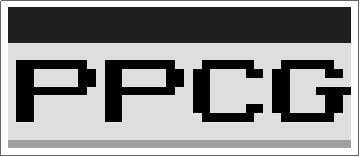69
10
This is the PPCG Prime
624 digits long
777777777777777777777777777777777777777777777777777777777777777777777777777777777777777777777777777777777777777777777777777777777777777777777777777777777777111111111111111111111111111111111111111111111111111111111111111111111111111111188888888118888888811188888811188888811188111118818811111881881111881881111881188111118818811111881881111111881111111188888888118888888811881111111881118888188111111118811111111881111111881111881188111111118811111111881111881881111881188111111118811111111188888811188888811111111111111111111111111111111111111111111111111111111111111111111111111111111333333333333333333333333333333333333333
If we split every 39 digits we get
777777777777777777777777777777777777777
777777777777777777777777777777777777777
777777777777777777777777777777777777777
777777777777777777777777777777777777777
111111111111111111111111111111111111111
111111111111111111111111111111111111111
188888888118888888811188888811188888811
188111118818811111881881111881881111881
188111118818811111881881111111881111111
188888888118888888811881111111881118888
188111111118811111111881111111881111881
188111111118811111111881111881881111881
188111111118811111111188888811188888811
111111111111111111111111111111111111111
111111111111111111111111111111111111111
333333333333333333333333333333333333333
Your task is to output the PPCG-Prime
This is codegolf.Shortest code in bytes wins.
If you input the PPCG-Prime in the Mathematica function below, you get this result
ArrayPlot@Partition[IntegerDigits@#,39]&

38How on earth did you find this? – Stewie Griffin – 2017-10-23T06:38:55.563
5@StewieGriffin The average probability for a number
nto be prime is proportional to1/log(n), which is not very small, anyway. Just check a lot of numbers until it's prime. – user202729 – 2017-10-23T06:40:34.6932
Comments are not for extended discussion; this conversation has been moved to chat.
– Dennis – 2017-10-23T12:51:13.1601@user202729
log(n)is about1436.6in this case. – Jeppe Stig Nielsen – 2017-10-24T21:25:21.527How many primes are <= this number? That would be one way to compress that information, although one that would make the program run incredibly slow. – Fabian Röling – 2017-10-25T13:10:13.367
3@Fabian I don't think this method would be efficient... For a Prime this big (624 digits), the number you are asking has 621 digits (and is even more difficult to golf), Unless this is the 10^621th prime!!! If you want to find your number, here is a simple approximation
x/logxby Gauss – None – 2017-10-25T13:31:35.510Oh, right. Would be interesting to find if its prime index was a prime whose index was a prime whose index was a prime and so on. Hm, that gives me an idea for a different challenge... – Fabian Röling – 2017-10-25T13:50:11.073
Oh, was already done: https://codegolf.stackexchange.com/questions/110812/find-recursively-prime-primes
– Fabian Röling – 2017-10-25T13:52:24.707